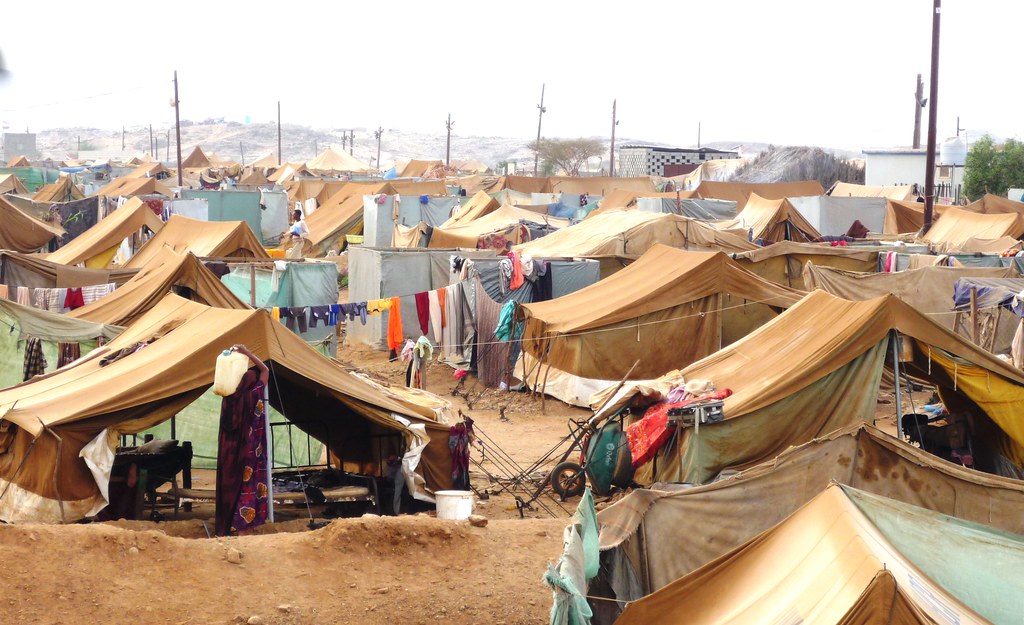In early March, the UK government announced that this year it would be providing “at least” £87 million in aid to Yemen, compared to £164 million in 2020. The decision was justified by Prime Minister Johnson by the “current straitened circumstances” of the pandemic, and that the public would think the government “had its priorities right”.
The announcement prompted the head of the UN’s Office for Humanitarian Affairs, and former secretary at the Department for International Development, Mark Lowcock, to say that ministers have decided to “balance the books on the backs of the starving people of Yemen”. Mr Lowcock warned that the decision is an act of “medium and longer-term self-harm” in the name of saving a “relatively small amount of money”.
Yemen has been devastated by a civil war since 2014, which has been exacerbated by the involvement of a Saudi-led coalition backed by the UK and other Western states against the Houthi rebels. In recent years, mounting evidence has suggested that weapons sold by the UK and other states have been used against civilians. In February, the Biden administration announced the end of U.S. arms sales to Saudi Arabia to be used in Yemen, however the UK refused to follow suit. In fact, in the quarter between July and September 2020, the UK authorised the sale of £1.39 billion worth of arms to Saudi Arabia, the majority of which were missiles and bombs.
Does the UK have a moral responsibility to provide aid to Yemen, or do the effects of the pandemic prioritise the improvement of the UK’s economic situation?
Firstly, there should be no question on whether or not the UK should provide aid to Yemen, as it has played a direct role in contributing to the issues the country faces today. The war in Yemen has devastated the country and its people. Hundreds of thousands are dead, and the war has triggered a famine which UN officials warn is becoming the worst the world has seen in decades. Through its sale of arms, munitions, and other equipment to Saudi Arabia, the UK is directly responsible for the effects of the conflict and has a moral obligation to provide aid.
In addition, the figure of £1.39 billion from the sale of arms is colossal compared to the 2020 Yemen aid budget of £164 million. It’s deplorable that the UK government generates such high levels of income on the suffering of the Yemeni people, and then proceeds to cut its aid budget in the name of “straitened circumstances”.
The justification of cutting aid budgets in the name of difficult economic circumstances is invalid. While the government has a responsibility to strive for the betterment of the UK’s prosperity in the face of the pandemic, there are certain factors that must be noted.
Firstly, the government is solely responsible for the state of the economic situation as its inadequate response to the pandemic contributed directly to the damaging extent of Covid-19’s effects on the British economy.
Secondly, the aid budget should remain immune to government cuts, especially concerning countries which have been directly affected by the UK. These effects can, and do, range from the lasting effects of colonialism to the results of inter-state agreements and trade deals, especially the sale of arms in Yemen’s case.
Slashing aid budgets won’t lead to the UK economy’s salvation, but competent leadership and decision-making will. The government’s mismanagement of the pandemic, including spending £22 billion on a track-and-trace system that didn’t work, far exceeds spending on aid to struggling countries. The fact that the UK government has to rely on the sale of arms to be used in a conflict which has claimed the lives of many civilians is disgraceful. The Yemeni people shouldn’t have to pay the price of the UK’s economic recovery, especially as a result of budgetary decisions made by a government which has directly contributed to their suffering.
Rayan Striebel
Image source: Flickr

